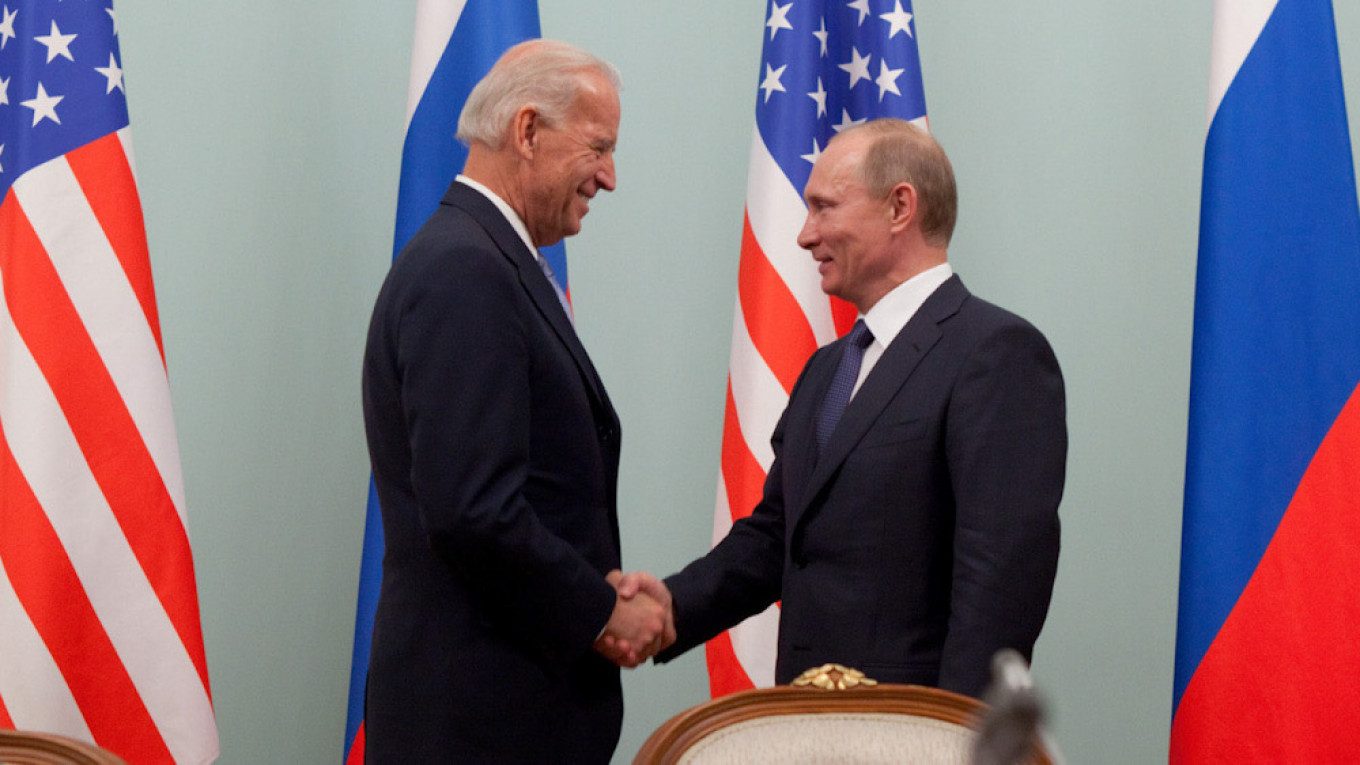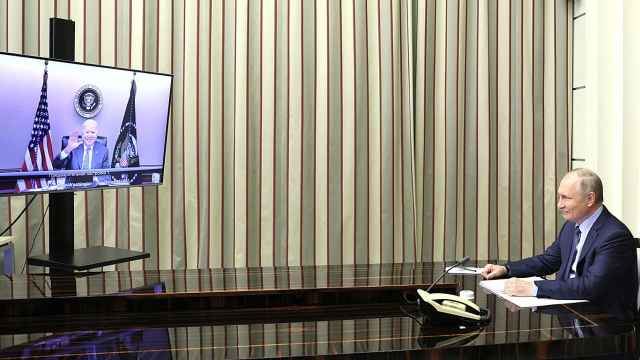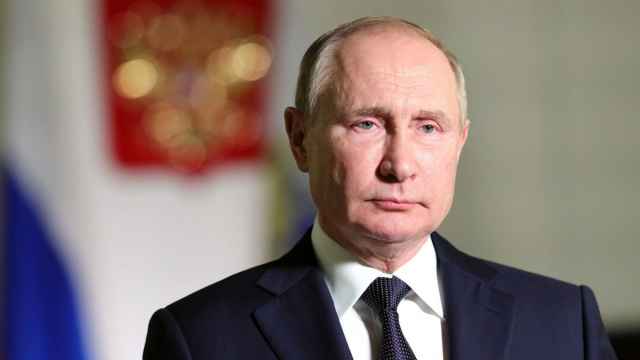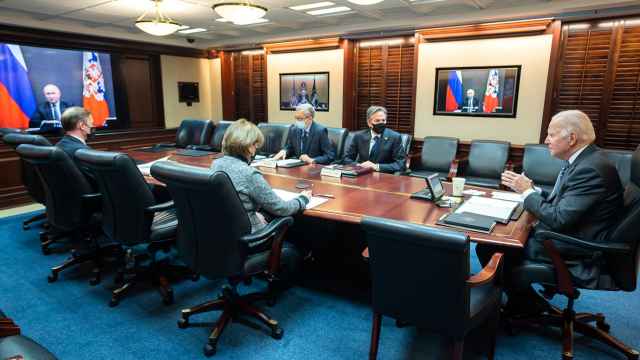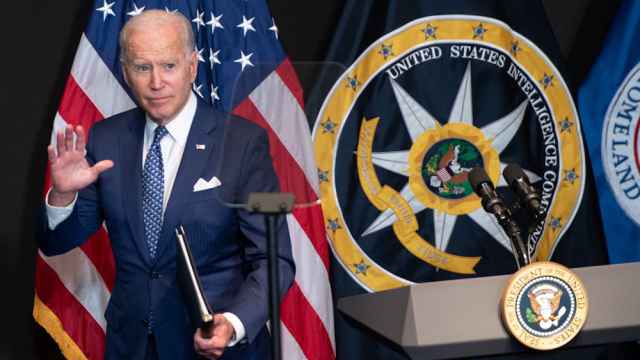The imminence of a U.S.-Russia summit means it’s spin and punditry season again. Vladimir Putin himself does his turn for U.S. TV, and everyone tries to predict outcomes based on everything from historical precedent to national interest. What’s missing in much of the discussion, though, is emotion.
Even in the most autocratic of systems, politics is about much more than one person, but of all the aspects of government, foreign policy is most directly shaped by the individual at the top, so it often does make sense to play the player, not the cards. What has struck me about the reams of op-eds and hours of punditry I’ve heard so far, is that the assessments about the player tend to demonize, those about the cards, denature.
There are all kind of passionate screeds about how ‘Killer’ Putin represents some kind of implacable threat to the very fabric of the international system — if not the entire time-space continuum — and how this is some kind of showdown between the two presidents.
The rather saner appraisals, on the other hand are, well, perhaps a little too sane. They tend to concentrate on how the U.S. can shape the relationship by framing various Russian interests. But what about the emotions? The fears, insecurities and above all sense of grievance that seems to bubble behind Putin’s bland façade?
I’m no psychologist, so treat what follows with caution, but I feel the reason why the Russians often seem opposed to what is a little sanctimoniously defined as the “rules-based international order” is not because they are anarchists.
They believe in rules. But they — like the Chinese, and the Iranians, often the Turks, and so many others — believe the rules of that order are stacked against them. They are rules to perpetuate Western hegemony. They are not fair.
This question of fairness crops up in Putin’s language a lot.
It is, of course, often then framed in practical terms. For example, a key reason given as to why Ukraine cannot be allowed to swing to the West or it could become a forward NATO base, and as Putin recently warned, “missiles could be fired from Kharkiv to hit Moscow in 7-10 minutes.”
But is there a real fear that this would happen? Probably not. I suspect Putin is not lying so much as rationalizing a sense that it is not fair for Russia to “lose” Ukraine.
Common sense, after all, suggests that the Kremlin should never have intruded into the Donbass, simply relied on Ukraine’s need for Russian energy and markets to maintain a close connection. Common sense dictates spending more on infrastructure and economic diversification, than the military and inefficient cartels.
And yet, Moscow continues to drive Ukrainians (and Belarussians) towards the West, waste money on foreign adventures, and snub the West at every turn.
It is not that Putin is a fool, but his emotional commitment to his own place in history and to Russia and its standing in the world has taken a dark turn. Struggling — like so many of his generation — to come to terms with Moscow’s fall from empire, a keen awareness of something lost has metastasized into a belief that something was actually taken by someone else.
I worry that Team Biden may not recognize this, may feel that dealing with Russia is simply a matter of putting up a firm front and making Putin realize that it is not in his interest to continue to be repressive at home, revanchist abroad.
It is not that American policy should be subordinated to Putin’s emotional neuralgias, but Biden should at least know what he is dealing with. For example, taking a firm line publicly, can all too easily look like a challenge, a demand that Russia bend the knee. Already smarting at perceived Western unfairness, Putin will not, cannot allow that to pass unchallenged. If threats are to be made, let them be out of public gaze and earshot.
One could plausibly argue that this is Putin’s problem, that if he insists on pushing his luck, then he will get what he deserves.
The problem is, though, that so many others will get what they don’t deserve in the process, from ordinary Russians who have no interest in some geopolitical bout of arm wrestling, to Ukrainians, Belarusians, Georgians and others on the front line.
Biden is, though, reckoned to be a good people person, and if a career in U.S. politics teaches anything, it is surely the real — sorry, Donald — art of the deal. We cannot expect much from this summit, but if he manages to convey to Putin the risks of continued risks of adventurism, while perhaps defusing some of the resentments and paranoias bubbling within, it will have been well worth the trip to Geneva.
A Message from The Moscow Times:
Dear readers,
We are facing unprecedented challenges. Russia's Prosecutor General's Office has designated The Moscow Times as an "undesirable" organization, criminalizing our work and putting our staff at risk of prosecution. This follows our earlier unjust labeling as a "foreign agent."
These actions are direct attempts to silence independent journalism in Russia. The authorities claim our work "discredits the decisions of the Russian leadership." We see things differently: we strive to provide accurate, unbiased reporting on Russia.
We, the journalists of The Moscow Times, refuse to be silenced. But to continue our work, we need your help.
Your support, no matter how small, makes a world of difference. If you can, please support us monthly starting from just $2. It's quick to set up, and every contribution makes a significant impact.
By supporting The Moscow Times, you're defending open, independent journalism in the face of repression. Thank you for standing with us.
Remind me later.



